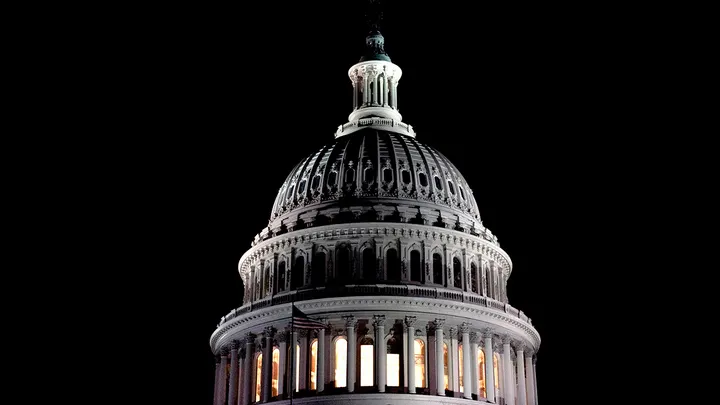Government shutdown live updates: Biden to sign funding bill Saturday, White House says

As the threat of a government shutdown looms large, U.S. President Joe Biden is expected to sign a crucial funding bill on Saturday, according to statements from the White House. This new development comes as lawmakers in Washington work to finalize a compromise deal aimed at preventing a shutdown and ensuring the continued operation of government services. The funding bill, which must be signed into law before the fiscal year ends, is viewed as a critical step toward averting an economic crisis and providing stability to federal operations.
The Looming Government Shutdown:
A government shutdown occurs when Congress fails to pass a funding bill or temporary funding measure to finance government operations. Without such funding, many government services and operations come to a halt, potentially impacting everything from federal employees’ pay to public services and safety programs.
With the end of the fiscal year on September 30, the U.S. government was rapidly approaching the deadline for passing a budget. Lawmakers faced immense pressure to negotiate a deal that would prevent a shutdown. The inability to reach an agreement led to widespread concerns about the effects of a government closure, which could disrupt vital services and create chaos for the American public and businesses alike.
Biden’s Role in the Negotiations:
President Biden has been actively involved in the negotiation process, working closely with lawmakers from both parties to find common ground on the funding bill. The White House confirmed that Biden is prepared to sign the proposed bill on Saturday, a move that would provide a sense of relief to federal employees, businesses, and the general public.
The bill includes provisions to fund various government agencies, including defense, health, and infrastructure, while also addressing certain policy priorities championed by the Biden administration. However, the compromise bill has faced scrutiny from both sides of the political spectrum, with some conservatives and progressives raising concerns over its details.
The Funding Bill: Key Provisions and Compromises:
While the details of the bill are still being finalized, sources from the White House have confirmed that it includes several key provisions to keep the government running and support important sectors of the U.S. economy. One of the bill’s primary focuses is funding for the Department of Defense, which has long been a bipartisan priority. Additionally, the bill addresses funding for healthcare programs, including Medicaid and child welfare services.
A critical aspect of the bill is the inclusion of a temporary extension for federal disaster relief programs, which are crucial in helping communities affected by natural disasters. The funding bill also includes provisions aimed at addressing the ongoing challenges faced by the public health sector, including efforts to combat the COVID-19 pandemic.
However, the bill does not fully resolve some of the more contentious issues in Washington, including long-term funding for certain domestic programs. This has led some lawmakers to express dissatisfaction with the short-term nature of the bill and the compromises made to secure enough votes for its passage.
The Political Backdrop:
The lead-up to the government shutdown has been marked by intense political wrangling, as members of both the Republican and Democratic parties have struggled to agree on key issues, including the size and scope of government spending, immigration policy, and funding for domestic programs.
Conservative lawmakers, particularly those aligned with the House Freedom Caucus, have pushed for deep cuts in government spending and other conservative priorities, while progressive Democrats have sought to protect funding for social programs like healthcare, education, and climate change initiatives. This ideological divide has made it difficult to reach a consensus on the funding bill, leading to multiple delays and extended negotiations.
Despite these challenges, President Biden and congressional leaders have worked tirelessly to craft a compromise measure that could win enough votes in both the House and Senate. The bill’s passage marks a significant step forward in the negotiations, but the debate over the future of government spending is far from over.
What Happens Next:
As the deadline approaches, the focus now shifts to ensuring that the funding bill is signed into law by President Biden before Saturday. Once signed, the bill will go into effect immediately, averting a government shutdown and providing temporary funding for government agencies until a more comprehensive budget can be agreed upon.
The passage of the funding bill will provide temporary relief to federal employees, who would have faced furloughs if a shutdown had occurred, and ensure that critical government programs continue to operate. However, the fight over long-term budget solutions is likely to continue, with lawmakers expected to continue negotiating over the details of government spending, tax policy, and social programs.
The imminent signing of the funding bill by President Biden represents a key moment in the ongoing efforts to prevent a government shutdown and ensure the continued operation of vital federal services. While the compromise measure addresses several immediate needs, it also highlights the ongoing challenges facing Congress in crafting a long-term budget that balances the competing interests of various political factions. With the funding bill on track to be signed into law, the focus will now shift to the next phase of budget negotiations, as lawmakers work to secure a sustainable financial future for the U.S. government and its citizens.






